Underneath the momentous events of Holy week, sits the Passover. Jesus, as a Jew, would have celebrated this festival every year of his life. In this post, we share a selection of poems to help us reflect on the last Passover Jesus celebrated with his closest friends – and how this vibrant drama continues to speak to every generation. We are invited to respond.
Photo by menachem weinreb on Unsplash
Primo Levi (1919-1987) was a poet, an Italian Chemist, a partisan, and a survivor of The Holocaust – his poem about the Passover offers a voice for the voiceless:
Passover
Tell me: how is this night different from all other nights?
How, tell me, is this Passover, different from other Passovers?
Light the lamp, open the door wide, so the pilgrim can come in,
Gentile or Jew; under the rags perhaps the prophet is concealed.
Let him enter and sit down with us; let him listen, drink, sing and celebrate Passover;
Let him consume the bread of affliction, the Paschal Lamb, sweet mortar and bitter herbs.
This is the night of differences, in which you lean your elbow on the table,
Since the forbidden becomes prescribed, evil is translated into good.
We will spend the night recounting, far-off events full of wonder,
And because of all the wine, the mountains will skip like rams.
Tonight they exchange questions: the wise, the godless, the simple-minded and the child.
And time reverses its course, today flowing back into yesterday,
Like a river enclosed at its mouth. Each of us has been a slave in Egypt,
Soaked straw and clay with sweat, and crossed the sea dry-footed.
You too, stranger. This year in fear and shame;
Next year in virtue and in justice.
Sit with this poem for a while if you like. How might this year’s Passover be ‘different from all other nights’ of the year? Who might you feel called to make welcome – to exchange questions with?
Levi intimates that what collapses on this night of nights is time. Our history becomes present, and we become one with it. Jesus totally understood this when he took the matzoh and the wine and said to eat them in memory of him. The Greek word used is anamnesis. It means a remembering that makes present again – time collapsing, history taking a new shape in our present. Passover for Jesus, and for all who celebrate it, is not a dry ritual from the past it is a vibrant drama in which we are caught up and which speaks to each generation.
Photo by Rosalind Chang on Unsplash
In every age there are those who find themselves in what the Passover names, in Hebrew, the mitzrayim. This is translated as “narrow place.” Slavery in Egypt confined the Hebrews to a narrow place, with constrictions on their physical, emotional, and spiritual lives. The Exodus is the story of liberation from the things that hold us back. Rabbi Nachman of Bratzlov (1772-1822) said, “The Exodus from Egypt occurs in every human being, in every era, in every year, and in every day.”
Today, all over the world from Syria to Afghanistan, from Ukraine to Yemen people are in the mitzrayim. Each of us goes through that portal from slavery to freedom at some point in our lives – and at the end we will find the ultimate mitzrayim of death. When Jesus celebrated Passover with his closest friends, he took those ancient symbols of the bread of affliction and the wine of freedom and made them his death and new life.
The powerful meaning of the Passover is also evoked in the following poem by the Christian monk Thomas Merton (1915-1968):
The Sowing of Meanings
For, like a grain of fire
Smouldering in the heart of every living essence
God plants His undivided power —
Buries His thought too vast for worlds
In seed and root and blade and flower,
Until, in the amazing light of April,
Surcharging the religious silence of the spring,
Creation finds the pressure of His everlasting secret
Too terrible to bear.
New life breaks out from the narrow place and the world frees itself from the darkness of winter.
You might wish to pause for a moment and reflect on this poem – perhaps there is a word, or a phrase, which speaks to you today?
Our final poem is by Russian Poet Boris Pasternak (1890-1960) – writer of Doctor Zhivago. Pasternak was part of a group of poets known for their voices of compassion and hope in the former Soviet Union – but subsequently persecuted then hounded to their deaths by Stalin. May his words not only be a Prayer for all Russians who stand for peace against war and dictatorship, but also a reminder of the powerful hope of Easter – that revelation of Spring in a Time of War.
Below is an extract of Pasternak’s longer poem. You can read the full version here:
In Holy Week
Still darkness, darkness everywhere.
And still so early in the world,
Innumerable stars appear
And each so bright in the night air
That if the earth could count them there,
It would sleep through Easter, lulled
By chanted psalm and chanted prayer…
…And singing lasts until the dawn,
When, having wept to their hearts’ content,
Gospel and psalm, all passion spent,
More quietly retreat
Along the lamplit street.
But fur and flesh will hold their breath
At midnight, hearing spring’s prediction
That wind and weather change direction,
And death may then be put to death
By the power of Resurrection.
For a sign of hope during this Holy Week and Passover, you might like to listen to this piece of music from Violinists' Support Ukraine.


